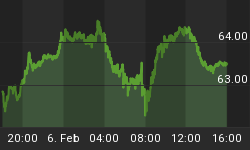With the exception of a resolution to the budget crisis, Tuesday probably saw the best combination of possible news and expectations that we could have for the remainder of 2012. The stocking is mostly filled with all of the gifts we are likely to get this year.
It started with the announcement that Greece managed to meet its goal for the bond buyback, as it attracted some €31bln in tenders. As it turns out, they had to pay more than the absolute highest price they were supposed to pay (the closing price on November 23rd), but as I noted at the time there was little to no chance of Greece completing the buyback without paying above-market prices, unless the sellers were coerced in some way, so that wasn't really news.
Now, according to the Bloomberg story, the Euro finance ministers get to meet on December 13th to decide whether to release the €34.4bln tranche of the rescue which was contingent on a successful buyback. But the deal is almost done. Given the interest holidays and the lengthened maturity of Greece's debt, it is looking increasingly likely that they've managed to delay the day of reckoning substantially. Sure, they did that by moving all of the debt to official institutions, who will carry it at par although it will eventually be defaulted on. Sure, this creates the risk of me-too-ism from other PIIGS who would like a lengthy payment holiday and hundreds of billions of Euros in support. But the risk that Greece will need to default in the near-term is passing. Of course, so is the need for Greece to continue austerity, once they've gotten everything they need from the Eurozone finance ministers. Maybe they were more clever than I gave them credit for...
So Greece was good news, and we're also cheerfully waiting for tomorrow's FOMC meeting. The results are so widely expected as to lead one to expect the intentions of the Fed had been carefully vetted beforehand. The overwhelming consensus is that the Fed will announce that they will cease half of Operation Twist: the half that has them selling short-dated Treasuries, of which the Fed now has almost none. The consequence is that the Fed will now be outright buying about $45bln in long-dated Treasuries, over and above what they were already purchasing in QE3, per month, without end.
Obviously, equities liked this idea because we all know that the script says stocks are supposed to ramp up into QE. More surprisingly, long-dated Treasuries actually slipped a bit lower. The 10-year yield is at 1.65% and 10-year real yields at -0.89%.
Now, here's the problem as we roll into Wednesday. There's really no chance that the Fed is going to do more than $45bln per month in Treasuries purchases, especially with the inconvenient (albeit cosmetic) downtick in the Unemployment Rate this month. Therefore, what is priced into the stock market is pretty much the best-case for QE.
Is there any chance that the Fed might actually do less, or even defer until the next meeting the decision about whether to pursue an acceleration of QE? The chart below (Source: Bloomberg) shows the 5-year inflation breakeven, 5-years forward, taken from TIPS and Treasuries.

Clearly, while inflation expectations are "contained" in the Fed's view, they are plainly becoming steadily less-contained. The 5y, 5y forward BEI has been rising in a trend for fourteen months now, and it is above 3%. In inflation swaps, which don't have embedded the financing advantage of nominal Treasuries over TIPS, the 5y, 5y forward is 3.17%. In short, the market is currently pricing expectations that the Fed will fail in its mission to keep core CPI inflation around 2.25%, and that there will be a long-lasting deviation from that target.
(As an aside: we can't tell just from the point estimate taken off the yield curve whether market expectations are for a steady miss, or whether the expectation is for something fairly close to target, but with considerably "option value" because the upward tails are a lot longer than the downward tails. It appears that both are currently contributing to the high forward breakevens because implied inflation volatilities have been rising.)
Now, like everyone else I expect that the Fed will stay on the course that has been laid out for them by the market, and endorse a QE4 plan tomorrow. And I don't think we'll get Evans Rule parameters tomorrow. But, as I said, all likely surprises from that expectation are negative for equity markets, and even if the Fed delivers what has been writ then I'm not sure where we get a further rally unless the fiscal cliff is averted.















